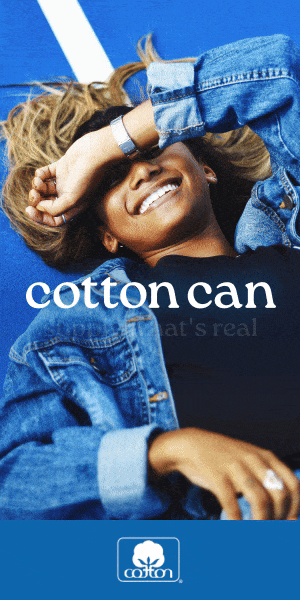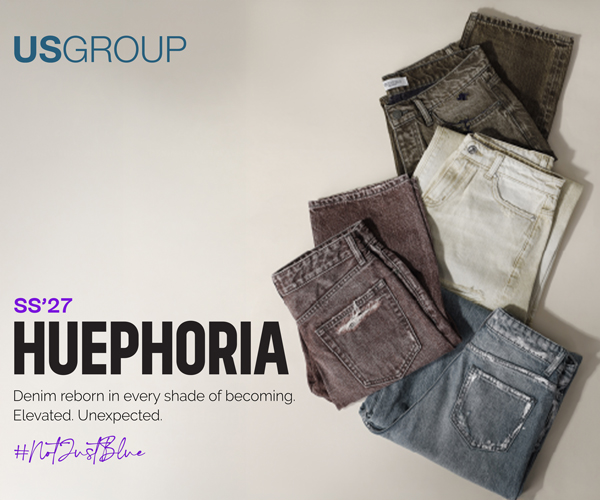Building resilience at AGI

The Pakistan-based mill is embarking on an ambitious expansion programme that includes a new LEED-certified spinning mill, a denim factory and a shredding facility, which will enable it to boost fabric offerings while minimising environmental impact.
It shows tenacity to forge ahead with expansion while many are scaling back, but Karachi-based AGI Denim is confident its investments will help it stand out as a responsible and forward-thinking denim and jeans manufacturer. The groundwork has begun on a new spinning mill that will have a capacity of 60,000kg of yarn per day when it is completed mid-year, and this will be followed by a fabric weaving mill and recycling facility in the first stage of a multi-year initiative.The addition of the spinning mill means AGI will become fully integrated – it already operates fabric and garment facilities – and executive director Hasan Javed says this will have many benefits including increased speed, quality control, better control over raw material and cost, and reducing the carbon footprint. “I think verticality is the key in the denim business and Pakistan is a leader when it comes to having fully vertical set-ups,” he says. “In less than a 100-mile radius you have everything from the cotton farming to ginning, spinning, dyeing, weaving, stitching, washing, packing and shipping, especially here in Karachi."
LEED certified
AGI Denim was born from the Artistic family of denim companies, having been set up in 1949 by Hasan Javed’s grandfather. The group has now divided into a number of separate companies and at the start of 2020 AGI went through a corporate restructuring and rebranding to have a leaner and more agile structure and lessen some of the confusion in the market. Its two manufacturing plants will produce more than 50 million metres of denim per year by the second half of 2021.
The spinning mill is being built to LeeD (Leadership in energy and environmental Design) standards, which Mr Javed says represents the company’s mindset. Leed certification provides verification of a building’s green attributes, and includes metrics such as energy savings, water efficiency, reduced CO2 emissions and improved indoor environment quality.
AGI had been targeting LEED gold at a minimum level, but initial assessments have shown the building should fall into the higher platinum category, with investments including solar power, an air-conditioning plant and a central vacuum and air circulation system throughout the facility to improve worker comfort. “The industry has changed so rapidly – sustainability, traceability, these are no longer just buzz words – you need to take tangible steps and actions so you can be known as a responsible company,” says Mr Javed.
Working with Swiss, Japanese and German technology providers, the mill will follow Industry 4.0 specifications, which means machinery will be linked through cloud-based computing and software and it will include a high degree of automation. This will enable workers to be trained in more highly skilled roles, says Mr Javed, taking the pressure off manual jobs, such as lifting of heavy bags of yarn. It also means the machinery can be operated and monitored remotely; something the pandemic has increased the need for, as more people began working from home. “I could be sitting outside the country and control the technology; everything is based on smart phones and tablets,” he explains. “You can get the complete rundown of your production, so it becomes a more transparent system where we can monitor everything that’s coming into the mill without physically being present.”
Yarn strength
The past few years have seen a growing demand for recycled content in denim, as well as for new blends or for fibres such as hemp. There is currently a maximum amount of recycled content that can be added before the yarns become weakened, as the shorter fibres are more likely to create imperfections in the fabrics and quality issues in the process. AGI has worked closely with machinery companies to design equipment that is better able to cope, which should increase the percentage of recycled material that can be added without reducing quality.
“Sustainability starts from the fabric R&D stage and from the fibre and yarn,” explains mr Javed. “We spent a lot of time customising our machines for running these short fibres, and we want to close the loop ourselves and have a circular approach.” The circular approach will be enabled in the first half of the year by a new system for converting post-industrial waste, as well as a new jeans shredding facility, which will be operational in the second half.
The expansion plans also include a LeeD-certified denim mill which will be built later in the year and a new effluent treatment plant that will enable 85% of the water to be recycled. Phase two will begin in 2022 or 2023 and will double the spinning capacity by 2023. By 2025, the aim is to be “fresh water neutral”.
Technology-driven
Such investment and expansion would appear to go against the grain of companies that are reining in spending while they assess the pandemic’s fallout on consumer spending. While Mr Javed admits the plans were made pre-covid, he believes companies that have invested in technology have tended to show the most resilience.
“We put everything on hold for about for three months, but we’re fortunate in that the denim industry – while it did have a severe impact – was also one of the faster ones to recover. The world has to bounce back and, with the vaccines, there’s a lot of optimistic news.”
He also points to a shift in sourcing, where some countries might be losing market share, and suggests Pakistan’s long-term investment strategies are making it increasingly attractive. An improvement in the political and law-and-order backdrop is also helping. “When I joined the company in 2010, people seemed reluctant to visit but now we often host US and European companies and they are pleasantly surprised with what they find on the ground. For a long time, we weren’t able to grow the business as a country,” he concludes. “But this is Pakistan’s time, we feel, to grow, and in order to grow you need to differentiate yourselves. And you can differentiate yourself by going green and investing in your company’s core values.”
A rendering shows AGI’s new facility. It will be on stream this year.
ALL PHOTOS: AGI Denim













